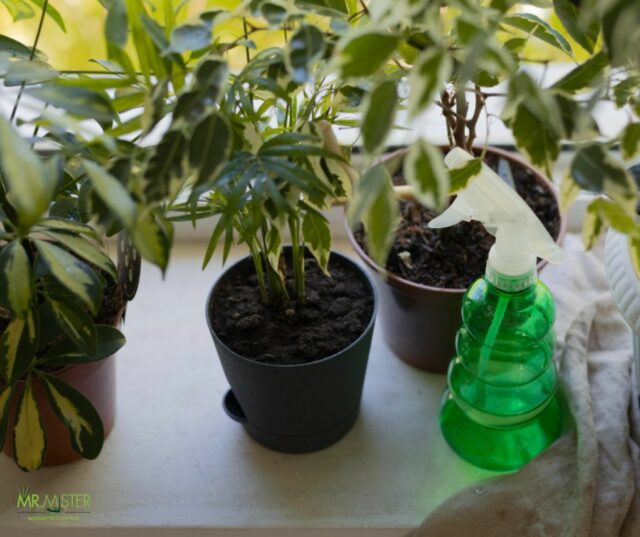Bite-Free Bliss: Effective Strategies for Killing Mosquitoes
Mosquitoes, those pesky insects that seem to be an inevitable part of warm weather, can turn a pleasant evening outdoors into an itchy nightmare. Apart from being irritating, mosquitoes can also pose serious health risks by transmitting diseases such as malaria, dengue fever, and Zika virus. Banishing mosquitoes from our living spaces is a common goal, and fortunately, there are effective strategies to keep these buzzing pests at bay.
Eliminate Standing Water
Mosquitoes breed in stagnant water, making it crucial to eliminate potential breeding grounds around your home. Regularly emptying and cleaning birdbaths, flower pot saucers, and clogged gutters can significantly reduce mosquito populations. Moreover, ensure that containers like buckets and barrels are properly covered to prevent water accumulation.
Install Mosquito Screens
Windows and doors are common entry points for mosquitoes. Installing screens can create a barrier, preventing these insects from entering your home while allowing fresh air to circulate. Make sure to repair any holes or tears in existing screens to maintain their effectiveness.
Use Mosquito Repellents
Applying mosquito repellents on exposed skin is a well-known strategy to deter these insects. Products containing DEET, picaridin, or oil of lemon eucalyptus are proven to be effective. Additionally, consider using mosquito repellent clothing, which is treated with insect-repelling chemicals.
Natural Repellents
For those who prefer natural alternatives, essential oils like citronella, eucalyptus, lavender, and peppermint are known to repel mosquitoes. You can use these oils in diffusers, candles, or apply them directly to the skin. Planting mosquito-repelling plants such as citronella, lavender, and marigolds in your garden can also contribute to a mosquito-free environment.
Mosquito Traps
Mosquito traps can be effective in reducing mosquito populations around your home. These devices use attractants such as carbon dioxide, heat, and light to lure mosquitoes into a trap, where they are either captured or killed. Place these traps strategically in areas where mosquitoes are most problematic.
Utilize Mosquito Nets
When it comes to a good night’s sleep, especially in areas prone to mosquito-borne diseases, using mosquito nets can be a lifesaver. Bed nets treated with insecticides provide an added layer of protection, ensuring a peaceful night without the buzzing and biting.
Optimize Outdoor Lighting
Mosquitoes are attracted to certain types of light, especially ultraviolet light. Consider using yellow or amber-toned bulbs for outdoor lighting, as they are less attractive to mosquitoes. Additionally, positioning lights away from seating areas can help reduce mosquito presence during outdoor activities.
Regular Yard Maintenance:
Maintaining your yard is crucial in the battle against mosquitoes. Trim tall grass, weeds, and overgrown vegetation regularly, as these areas provide ideal hiding spots for mosquitoes during the day. Keeping the lawn short and the landscaping tidy reduces the places where mosquitoes can rest, making your outdoor spaces less inviting to these unwanted guests.
Introduce Natural Predators:
Nature provides its own mosquito control with certain predators that feed on mosquito larvae. Consider introducing fish such as gambusia (mosquito fish) to ornamental ponds or water features. These fish are voracious consumers of mosquito larvae and can significantly reduce mosquito populations in standing water.
Citrus Peel Mosquito Deterrent:
Citrus peels, particularly from lemons and oranges, contain natural oils that mosquitoes find repulsive. Rubbing citrus peels on your skin can act as a natural deterrent. Additionally, boiling citrus peels in water and using the infused liquid as a spray for indoor spaces provides a pleasant-smelling, non-toxic alternative to commercial repellents.
Use Mosquito-Repellent Plants Indoors:
Extend the natural protection indoors by incorporating mosquito-repelling plants like basil, rosemary, and mint. Not only do these plants add a touch of greenery to your living spaces, but they also release fragrances that mosquitoes dislike, creating a more pleasant environment while naturally deterring these pesky insects.
Invest in Mosquito-Proof Clothing:
For those spending significant time outdoors, especially in areas with a high mosquito population, investing in mosquito-proof clothing can be a game-changer. Clothing treated with insect-repelling chemicals or designed specifically to prevent mosquito bites offers an added layer of protection, allowing you to enjoy outdoor activities without constant concerns about mosquito exposure.
Consider Professional Mosquito Control Services:
In regions with particularly challenging mosquito problems, professional mosquito control services can provide targeted and effective solutions. These services may include the use of larvicides, adulticides, and specialized treatments tailored to the specific needs of your property. Professional mosquito control can be a valuable investment, especially for those living in areas with high disease prevalence.
Conclusion:
Banishing mosquitoes requires a comprehensive and adaptable approach that combines natural remedies, preventive measures, and, when necessary, professional assistance. By incorporating these additional strategies into your mosquito control regimen, you can create a more robust defense against these bothersome insects. Remember that persistence is key, as mosquitoes can adapt to changing conditions. With a combination of these strategies, you can significantly reduce the mosquito population around your home, allowing you to enjoy a mosquito-free and more comfortable living environment.
For expert assistance in mosquito control tailored to your specific needs, contact Mr. Mister Mosquito Control. Take the first step towards a mosquito-free living space and reclaim your outdoor enjoyment.
FAQs
Why are mosquitoes a concern, other than being annoying?
Mosquitoes can transmit diseases such as malaria, dengue fever, and Zika virus, posing serious health risks to humans. Effective mosquito control is crucial to mitigate these risks.
What is the importance of eliminating standing water?
Mosquitoes breed in stagnant water. By regularly emptying and cleaning birdbaths, flowerpot saucers, and clogged gutters, you can significantly reduce mosquito populations around your home.
How do mosquito screens help in keeping mosquitoes out?
Installing screens on windows and doors creates a barrier, preventing mosquitoes from entering your home while allowing fresh air to circulate. Make sure to repair any holes or tears in existing screens.
What are the recommended mosquito repellents?
DEET, picaridin, and oil of lemon eucalyptus are proven effective ingredients in mosquito repellents. These can be applied to exposed skin. Mosquito repellent clothing, treated with insect-repelling chemicals, is also a viable option.
Are there natural alternatives for mosquito repellents?
Yes, essential oils like citronella, eucalyptus, lavender, and peppermint can repel mosquitoes. Planting mosquito-repelling plants such as citronella, lavender, and marigolds in your garden is another natural strategy.
How do mosquito traps work?
Mosquito traps use attractants like carbon dioxide, heat, and light to lure mosquitoes into a trap, where they are either captured or killed. Placing these traps strategically in mosquito-prone areas can reduce populations.
What’s the benefit of using mosquito nets for sleep?
Mosquito nets provide a physical barrier, ensuring a peaceful night without mosquitoes. Bed nets treated with insecticides offer added protection against mosquito-borne diseases.
How can outdoor lighting be optimized to deter mosquitoes?
Mosquitoes are attracted to certain types of light, especially ultraviolet light. Using yellow or amber-toned bulbs for outdoor lighting and positioning lights away from seating areas can help reduce mosquito presence.
Why is regular yard maintenance important in mosquito control?
Tall grass, weeds, and overgrown vegetation provide ideal hiding spots for mosquitoes. Regular yard maintenance, including trimming and keeping the lawn short, reduces places where mosquitoes can rest.
How can natural predators help control mosquito populations?
Certain predators, like mosquito fish (gambusia), feed on mosquito larvae. Introducing these predators to ornamental ponds or water features can significantly reduce mosquito populations in standing water.
How can citrus peels be used as a mosquito deterrent?
Citrus peels contain natural oils that mosquitoes find repulsive. Rubbing citrus peels on the skin or using infused citrus peel liquid as a spray indoors provides a non-toxic alternative to commercial repellents.
How do mosquito-repellent plants contribute indoors?
Plants like basil, rosemary, and mint release fragrances that mosquitoes dislike, creating a more pleasant indoor environment while naturally deterring these pests.
Why invest in mosquito-proof clothing for outdoor activities?
Mosquito-proof clothing, treated with insect-repelling chemicals, offers an added layer of protection, allowing individuals to enjoy outdoor activities without constant concerns about mosquito exposure.
When should professional mosquito control services be considered?
In regions with challenging mosquito problems or high disease prevalence, professional mosquito control services, utilizing larvicides, adulticides, and specialized treatments, can provide targeted and effective solutions. It can be a valuable investment for long-term control.
* Schedule a Free Mosquito Control Consultation – 404-941-0720 *
* Guaranteed Results * 100% Biodegradable * Locally Owned







